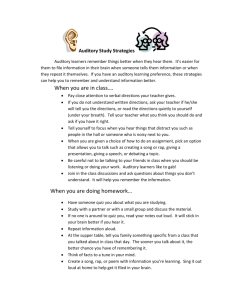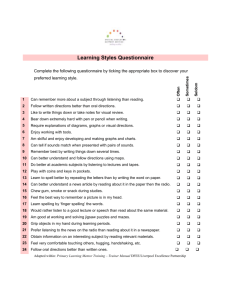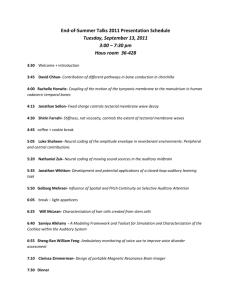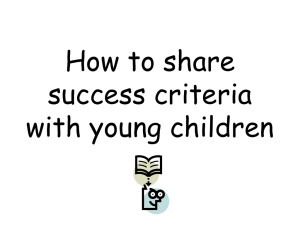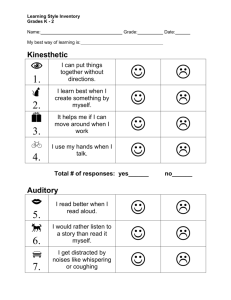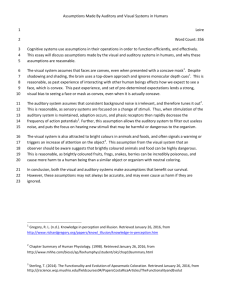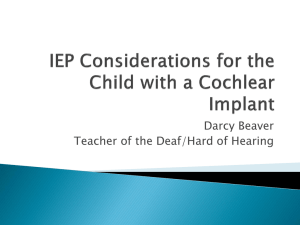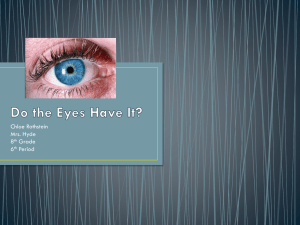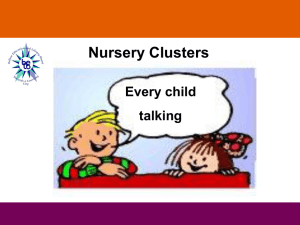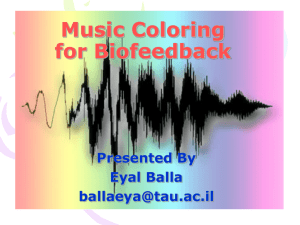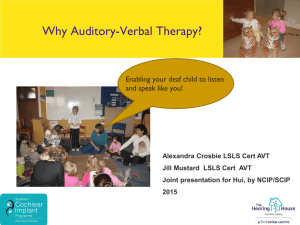Auditory Processing
advertisement
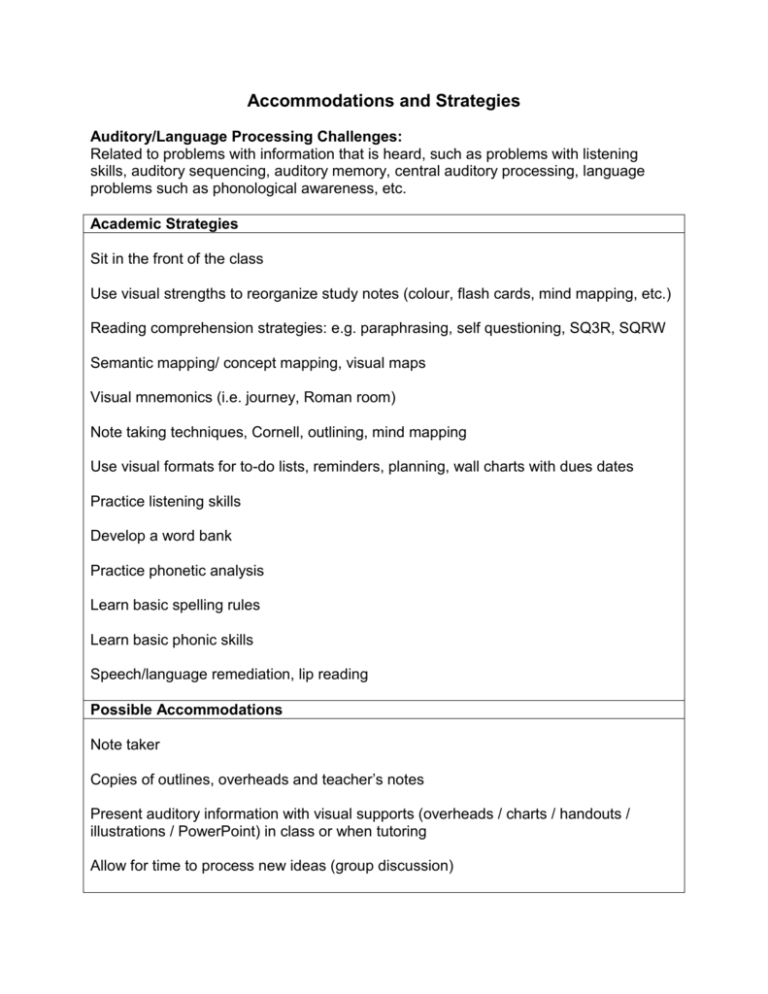
Accommodations and Strategies Auditory/Language Processing Challenges: Related to problems with information that is heard, such as problems with listening skills, auditory sequencing, auditory memory, central auditory processing, language problems such as phonological awareness, etc. Academic Strategies Sit in the front of the class Use visual strengths to reorganize study notes (colour, flash cards, mind mapping, etc.) Reading comprehension strategies: e.g. paraphrasing, self questioning, SQ3R, SQRW Semantic mapping/ concept mapping, visual maps Visual mnemonics (i.e. journey, Roman room) Note taking techniques, Cornell, outlining, mind mapping Use visual formats for to-do lists, reminders, planning, wall charts with dues dates Practice listening skills Develop a word bank Practice phonetic analysis Learn basic spelling rules Learn basic phonic skills Speech/language remediation, lip reading Possible Accommodations Note taker Copies of outlines, overheads and teacher’s notes Present auditory information with visual supports (overheads / charts / handouts / illustrations / PowerPoint) in class or when tutoring Allow for time to process new ideas (group discussion) Tape recording lectures Reduced course load Technological/Assistive Mind mapping & flowcharting software (Inspiration, Mind Manager & Smart Draw etc.) Screen & text readers (Jaws, textHELP, HELPRead, ReadPlease, Text Aloud MP3, Complete Reading System, etc.). Texts in alternate format through books on tape or scan and read technology Reading Pen for word decoding difficulties RoadRunner (portable e-text reader) Text to audio conversion tech Palm Pilot, day planners, time posters& whiteboard Franklin spell checkers (Franklin boasts a wide variety including expandable “Bookman” and speaking models) FM System Social Practice listening skills Memory pegs for communication skills Write things down / Palm pilot Self-advocate for written instruction Career Charting tasks in the order it must happen Written instruction (not oral) FM System Use of outlines/ overheads/ PowerPoint Visual reminders, post-its, white board, time poster Self-advocacy skills Physical & Environmental Reduce auditory distraction Preferred seating Use of headphones, ear protectors/plugs Sound masking (i.e. fan, sound generators, white noise generators) Visual reminders, post-its, white board, time poster Use of visual cues to supplement auditory cueing (i.e. “this is very important” = ***) Activities to strengthen your auditory processing http://www.ldpride.net/chapter8.htm Close your eyes and just listen to an entire television show. Can you figure out what is going on? Spend more time listening to the radio instead of watching music videos. Be very quiet and see how many different sounds you can hear. Listen to yourself read out loud. With a friend, try to repeat a made-up series of numbers or letters. With a friend, try to repeat sentences word-for-word. Close your eyes while listening to your friends or family. Can you tell who is talking? Say days of the week in order, starting from different points. Close your eyes and try to imagine the voices of friends or family. Quickly name the months of the year backward. Quickly say the days of the week backward. Try to sing or hum a new song. Listen to songs and try to remember all of the words. Say the letters of the alphabet in order, starting from different points. Say the alphabet backward. Follow several commands that a friend tells you. Turn the volume very low on the radio. Listen very carefully and see if you can understand what you hear.
